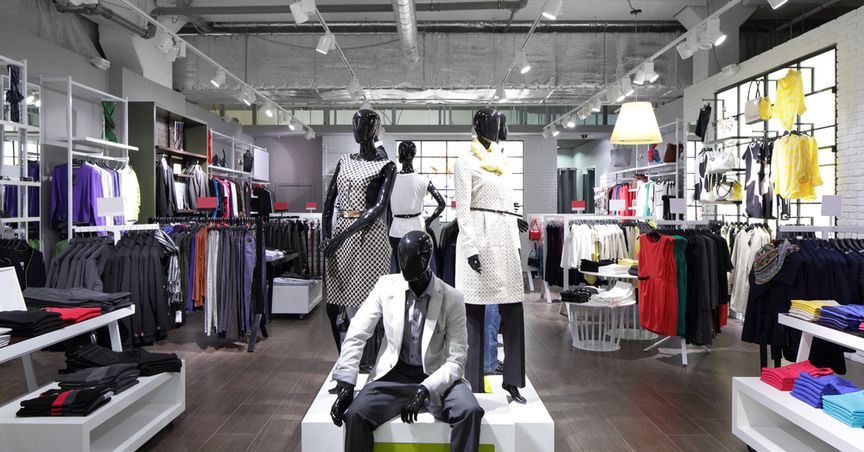Summary
- Lord & Taylor, the oldest US retail store chain has filed for bankruptcy.
- The brick-and-mortar retailers are facing the brunt of the crisis, along with other industries like travel & tourism and hospitality.
- J Crew, J.C. Penney, Brooks Brothers and Owners of Ann Taylor, Loft also filed for bankruptcy amid coronavirus pandemic.
As the world battles with coronavirus pandemic, the retail industry is tumbling into the crisis. With no optimism for the near future, many retail stores are closing down businesses.
Lord & Taylor, the oldest U.S. department store chain has filed for bankruptcy. The department store company announced an end to the legendary retail chain, which has its roots since 1826. A nearly 200-year-old department store chain has announced the closing of stores in all locations.
ALSO READ: U.S. Chaparral Energy Files for Bankruptcy Protection
Lord & Taylor closed its Fifth Avenue flagship store last year.
In 2019, Lord & Taylor was acquired by an online clothing-rental startup called Le Tote. Francisco-based Le Tote bought Lord & Taylor for $100 million from Hudson's Bay Co.
Le Tote took over the 38 stores and also its online operations. Hudson's Bay continued to own Lord & Taylor's real estate properties and cover Le Tote's rent at the properties for three years. Both the companies hoped to revive its relevance to new, younger shoppers.
Le Tote and Lord & Taylor are now seeking Chapter 11 protection from their creditors. While applying for Bankruptcy both the companies stated that that they operated in total 38 locations which are temporarily closed since March 2020 due to the health crisis.
Novel coronavirus pandemic has wreaked havoc on retailers, especially brick-and-mortar retailers. Though Amazon is an exception, driven by the new normal of digital trends. The pandemic restrictions led people to spend months at home, which resulted in clothing sales callable across the globe.
RELATED READ: Australia’s Retail Confidence Crashes in August amid Level 3 restrictions
What led to the downfall of Lord & Taylor?
English-born Samuel Lord started business in Manhattan, New York in 1824. His wife's cousin, George Washington Taylor, joined the firm in 1834. The company was then named Lord & Taylor. Back then the shop sold hosiery, misses' wear, and cashmere shawls.
In 1859, Lord & Taylor opened a second store in the present-day SoHo neighbourhood, keeping the older store open. With this started the expansion of their business.
Its legendary Fifth Avenue store and headquarters opened in 1914. The famous architectural firm of Starrett & Van Vleck designed the iconic building, which is called Lord & Taylor Building. The Fifth Avenue store had a concert hall with a built-in pipe organ and several dining rooms as well.
A step for revival failed?
Lord & Taylor was sold to a 7-year-old startup Le Tote, but before the sale, its flagship store on Manhattan's 5th Avenue was sold to WeWork.
In 2018, Lord & Taylor's previous owner Hudson's Bay sold the landmark building to add needed liquidity to the company. After which he continued to operate Lord & Taylor in the building at a smaller scale. Now the customers have to say goodbye to the shop as well.
Hudson's Bay, the owner of Saks Fifth Avenue, mentioned that the company is struggling. Its chief executive had said that the retail chain was stuck in the "middle" space among competitors. Lord & Taylor neither sold high-end luxury apparel nor a discount brand.
Le Tote envisioned transforming Lord & Taylor business and targeting Lord & Taylor brand loyal customers along with the city-dwelling customers. Lord & Taylor’s target customers typically comprise suburban women around the age of 50, and Le Tote target customers range is city-centric women in their 30s.
The revival plan was knocked down at the sudden coronavirus outbreak. The brick-and-mortar retailers are facing the brunt of the crisis, along with other industries like travel & tourism and hospitality. The retail stores which were forced to close down because of the restrictions in order to avoid the spread of coronavirus are particularly suffering.
Miseries of other retail brands
Since the start of the outbreak, many companies have filed for Chapter 11 bankruptcy. They want to shed debt and get out of costly leases.
Fashion firm J Crew filled for bankruptcy protection in the month of May.
Ascena Retail Group, the owner of various clothing labels, including Ann Taylor, LOFT, Lou & Grey, Lane Bryant, Catherines, Cacique, and Justice have filed for Chapter 11 bankruptcy. The company announced the closing of several stores. Ascena is also a tenant of major malls and shopping centres. The group said it plans to close 'a significant number' of stores for the young girls' brand called Justice.
It will close "a select number" of Ann Taylor, Loft, Lane Bryant and Lou & Grey locations and the group will close all Catherines stores along with all stores of all of its brands in Puerto Rico, Canada and Mexico.
J.C. Penney filed for bankruptcy and declared that it would permanently shut down its 242 stores across the U.S. The 118-year-old retailer has been struggling for many years.
Brooks Brothers, the 200-year-old company known for dressing up nearly every U.S. president also declared bankruptcy.
Another century-old women's apparel brand New York & Co. has also filed for bankruptcy protection. The company plans to liquidate all the stores as it had to forcefully close the stores because of the coronavirus pandemic effects. New York & Co. also faced supply-chain issues because of the discrepancies amid the health crisis.
Bottomline
The retail scenario has changed since COVID-19 pandemic struck the world. The recent Bureau of Economic Analysis reports data showed that the personal consumption in the second quarter dropped 10.5%. The era of department stores may be dying, but the brand loyal consumers hope that the century-old retail businesses may persist in the new post-COVID world.
Besides, online shopping has been defining the new charter for retail businesses amidst growing social distancing norms and digital trends.



